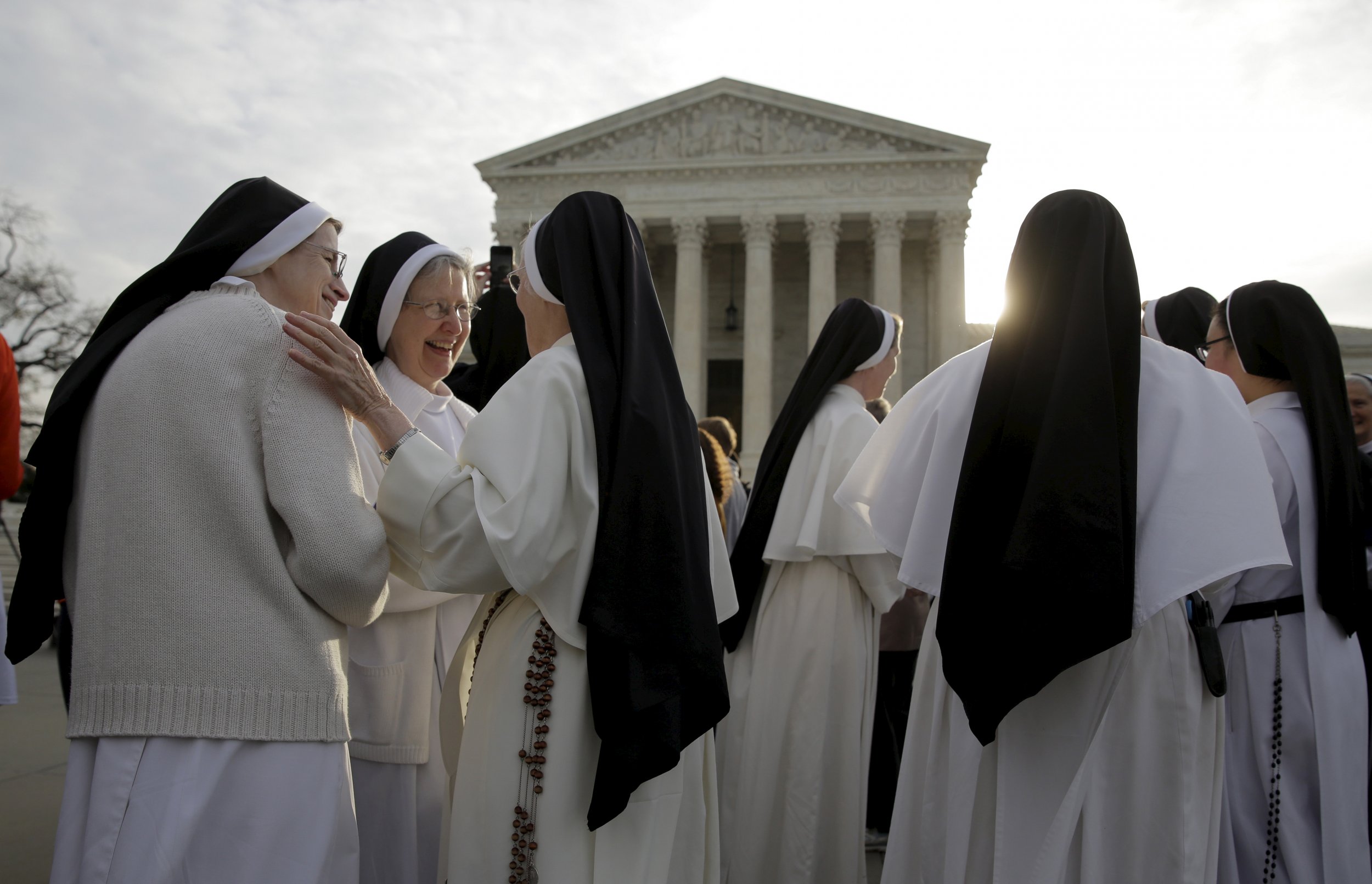
WASHINGTON (Reuters) - The U.S. Supreme Court began hearing arguments on Wednesday in appeals by Christian groups demanding a full exemption on religious grounds from a mandate under President Barack Obama's healthcare law to provide insurance that covers contraceptives.
Eight justices were hearing a scheduled 90 minutes of arguments on whether nonprofit entities that oppose the requirement for religious reasons can object under a 1993 U.S. law called the federal Religious Freedom Restoration Act to a compromise arrangement offered by the Obama administration.
The 2010 Affordable Care Act, dubbed Obamacare, was passed by Congress over unified Republican opposition. It is considered Obama's signature legislative achievement. Conservatives have mounted numerous legal challenges to the law, with the Supreme Court in 2012 and 2015 issuing high-profile rulings leaving it intact.
Dozens of supporters of the Obama administration's position gathered outside the courthouse for a noisy rally ahead of the oral arguments. Several held signs featuring the slogan "my birth control, my business."
The argument, consolidating seven related cases, was being heard by eight justices, with the court one short following the Feb. 13 death of Antonin Scalia. The court is now divided 4-4 between liberal and conservative justices, and a split ruling along those lines was seen as possible.
A 4-4 split would leave in place lower-court rulings favoring the Obama administration.
The Christian groups object to a compromise first offered by the Obama administration in 2013. It allows groups opposed to providing insurance covering birth control to comply with the law without actually paying for the required coverage.
Groups can certify they are opting out of the requirement by signing a form and submitting it to the government. The government then asks insurers to pick up the tab for the contraception.
The challengers contend the accommodation violates their religious rights by forcing them to authorize the coverage for their employees even if they are not paying for it.
The case represents an uphill battle for the challengers, who lost all seven cases now before the Supreme Court in lower courts.
Scalia, a conservative Roman Catholic, was considered a reliable vote for the religious groups. In 2014, he was in the majority when the court ruled 5-4 that family-owned companies run on religious principles, including craft retailer Hobby Lobby Stores Inc, could object to the provision for religious reasons.
If the four conservatives who sided with Scalia in that case remain unified, the best result the challengers could get would be a 4-4 split.
A Colorado-based order of Roman Catholic nuns called the Little Sisters of the Poor that runs care homes for the elderly was among the groups challenging the requirement.
Among the other challengers were: Bishop David Zubik and the Roman Catholic Diocese of Pittsburgh; the Roman Catholic archdiocese of Washington, D.C.; Priests for Life; and East Texas Baptist University.
Roman Catholic priest Frank Pavone, national director of the group Priests for Life, said the dispute boils down to this issue: "the government cannot force believers to choose between following their faith and following the law."
"This accommodation is not an 'opt-out.' Rather, it is a hijacking of the mechanism of our insurance plans to further the immoral goal of expanding access to abortion-inducing drugs and other objectionable services," Pavone said.
Ilyse Hogue, president of the abortion rights group NARAL Pro-Choice America, said that "women must be empowered to make our own decisions about our bodies."
"No one should have to ask their boss for permission to get the healthcare they need. Period," Hogue said. "We hope that the Supreme Court will agree with that simple statement."
A ruling is due by the end of June.
Uncommon Knowledge
Newsweek is committed to challenging conventional wisdom and finding connections in the search for common ground.
Newsweek is committed to challenging conventional wisdom and finding connections in the search for common ground.
About the writer
To read how Newsweek uses AI as a newsroom tool, Click here.








